
Tiger Force was the name of a long-range reconnaissance patrol (LRRP) unit of the 1st Battalion (Airborne), 327th Infantry, 1st Brigade (Separate), 101st Airborne Division, which fought in the Vietnam War from November 1965 to November 1967. The unit gained notoriety after investigations during the course of the war and decades afterwards revealed extensive war crimes against civilians, which numbered into the hundreds.

South Maluku, also South Moluccas, officially the Republic of South Maluku, is an unrecognised secessionist republic that originally claimed the islands of Ambon, Buru, and Seram, which currently make up the Indonesian province of Maluku.
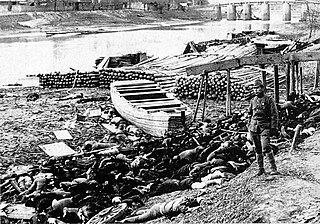
During its imperial era, the Empire of Japan committed numerous war crimes and crimes against humanity across various Asian-Pacific nations, notably during the Second Sino-Japanese and Pacific Wars. These incidents have been referred to as "the Asian Holocaust", as "Japan's Holocaust", and also as the "Rape of Asia". The crimes occurred during the early part of the Shōwa era, under Hirohito's reign.

The Royal Netherlands East Indies Army was the military force maintained by the Kingdom of the Netherlands in its colony of the Dutch East Indies, in areas that are now part of Indonesia. The KNIL's air arm was the Royal Netherlands East Indies Army Air Force. Elements of the Royal Netherlands Navy and Government Navy were also stationed in the Netherlands East Indies.

The Den Uyl cabinet was the executive branch of the Dutch Government from 11 May 1973 until 19 December 1977. The cabinet was formed by the social-democratic Labour Party (PvdA), the christian-democratic Catholic People's Party (KVP) and Anti-Revolutionary Party (ARP), the progressive Political Party of Radicals (PPR) and the social-liberal Democrats 66 (D'66) after the election of 1972. The cabinet was a Centre-left grand coalition and had a substantial majority in the House of Representatives with Labour Leader Joop den Uyl serving as Prime Minister. Prominent Catholic politician Dries van Agt, the Minister of Justice from the previous cabinet, served as Deputy Prime Minister until his resignation. Prominent Protestant politician Gaius de Gaay Fortman the Minister of the Interior assumed the office of Deputy Prime Minister on 8 September 1977.
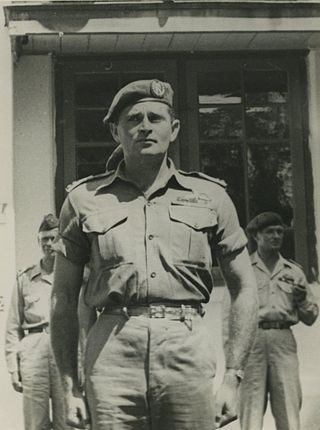
Raymond Pierre Paul Westerling was a Dutch military officer of the Royal Netherlands East Indies Army. He orchestrated a counter-guerrilla operation in Sulawesi during the Indonesian National Revolution after World War II and participated in a coup attempt against the Government of Indonesia in January 1950, a month after the official transfer of sovereignty. Both actions were denounced as war crimes by the Indonesian authorities. Born in the Ottoman Empire, despite his nickname, The Turk, Westerling was of mixed Dutch and Greek descent.
Joop is a Dutch masculine given name, often a short form (hypocorism) of Johannes, Joseph, Jacobus, or other names. It may refer to:

Alexander Evert Kawilarang was an Indonesian freedom fighter, military commander, and founder of Kesko TT, which would become the Indonesian special forces unit Kopassus. However, in 1958 he resigned his post as military attaché to the United States to join the separatist Permesta movement where he encountered Kopassus as his opponent. His involvement in Permesta damaged his military career, but he remained popular and active in the armed forces community.
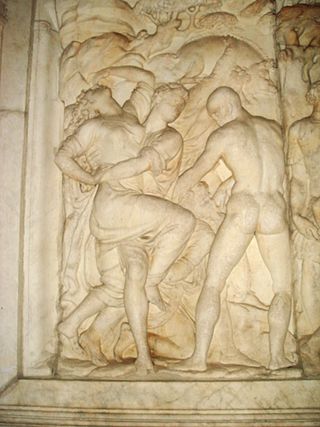
Wartime sexual violence is rape or other forms of sexual violence committed by combatants during an armed conflict, war, or military occupation often as spoils of war, but sometimes, particularly in ethnic conflict, the phenomenon has broader sociological motives. Wartime sexual violence may also include gang rape and rape with objects. It is distinguished from sexual harassment, sexual assaults and rape committed amongst troops in military service.

Prince Bernhard of Lippe-Biesterfeld was Prince of the Netherlands from 6 September 1948 to 30 April 1980 as the husband of Queen Juliana. They had four daughters together, including Beatrix, who was Queen of the Netherlands from 1980 to 2013.

The Dutch East Indies, also known as the Netherlands East Indies, was a Dutch colony with territory mostly comprising the modern state of Indonesia, which declared independence on 17 August 1945. Following the Indonesian War of Independence, Indonesia and the Netherlands made peace in 1949. In the Anglo-Dutch Treaty of 1824, the Dutch ceded the governorate of Dutch Malacca to Britain, leading to its eventual incorporation into Malacca (state) of modern Malaysia.
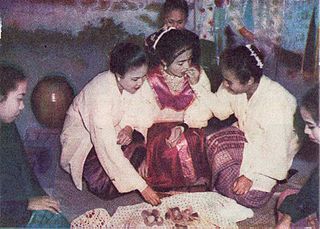
Moluccans are the Austronesian-speaking and Papuan-speaking ethnic groups indigenous to the Maluku Islands, Eastern Indonesia. The region was historically known as the Spice Islands, and today consists of two Indonesian provinces of Maluku and North Maluku. As such, "Moluccans" is used as a blanket term for the various ethnic and linguistic groups native to the islands.
The South Sulawesi Campaign was a campaign during the Indonesian National Revolution. It was a counter-insurgency offensive of the special forces of the KNIL against Indonesian infiltrations from Java and pro-Indonesian local militias. It was masterminded by the controversial Raymond Westerling, a captain in the KNIL. Westerling's operation, which started in December 1946 and ended in February 1947, succeeded in eliminating the insurgency and undermining local support for the Republicans by instituting summary executions of suspected enemy fighters.

The Rawagede massacre, was committed by the Royal Netherlands East Indies Army on 9 December 1947 in the village of Rawagede. Forces of the Royal Netherlands East Indies Army were battling Indonesian Republican army fighters TNI and militia forces seeking independence for Indonesia. Almost all males from the village, amounting to 431 men according to most estimates, were killed by the Royal Netherlands East Indies Army, since the people of the village would not tell them where the Indonesian independence fighter Lukas Kustaryo was hiding.
Capital punishment is a legal penalty in Indonesia. Although the death penalty is normally enforced only in grave cases of premeditated murder, corruption in extreme cases can lead to the death penalty and the death penalty is also regularly applied to certain drug traffickers. Executions are carried out by firing squad.

Jacobus Smede "Koos" Sinninghe Damsté (1902–1995) was a lawyer in colonial Indonesia during 1927–1942, prosecutor of Japanese war criminals during 1946–1947, chairman of the national business association in Indonesia during 1948–1954, and head of the Netherlands Security Service during 1955–1967.
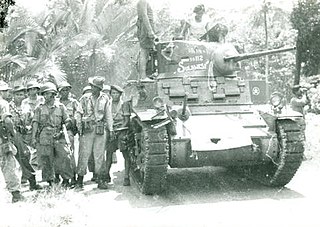
The Invasion of Ambon was a combined Indonesian military operation which aimed to seize and annex the self proclaimed Republic of South Maluku.

The Rengat massacre was committed by the Royal Netherlands East Indies Army on 5 January 1949 in Rengat, Riau during Operation Kraai. Following the capture of the town, paratroopers of the Korps Speciale Troepen under lieutenant Rudy de Mey subjected confirmed and suspected TNI militants, civil servants, and ordinary townspeople to looting, rape, and summary execution. Bodies were disposed of in the Indragiri River.

David William McBride is an Australian whistleblower and former British Army major and Australian Army lawyer. In 2016, McBride provided the Australian Broadcasting Corporation with documents that contained information about war crimes committed by Australian soldiers in Afghanistan.
War crimes in Afghanistan covers the period of conflict from 1979 to the present. Starting with the Soviet invasion of Afghanistan in 1979, 40 years of civil war in various forms has wracked Afghanistan. War crimes have been committed by all sides.
















